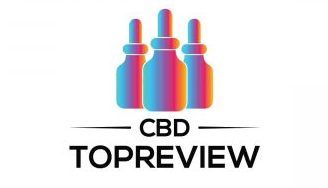09 August 2023. Written by Madison Baker. Estimated careful reading time: 10 minutes.
Understanding the Basics: What Is Cbd and Cbda 🌿💊😌
CBD, or cannabidiol, is a non-intoxicating compound found in the cannabis plant. It is gaining popularity for its potential therapeutic effects, such as reducing anxiety and inflammation, without producing a “high.” On the other hand, CBDA, or cannabidiolic acid, is the acidic precursor to CBD. CBDA is naturally present in raw cannabis plants and is especially abundant in strains with high CBD content.
When cannabis plants are heated or exposed to ultraviolet (UV) light, CBDA decarboxylates into CBD. This process removes the acidic carboxyl group from CBDA and transforms it into CBD, making it more available for the body to use. While CBD is more commonly used for its potential benefits, some studies suggest that CBDA may have its own unique effects on the body. Further research is needed to fully understand the differences between the two compounds.
The Effects of Cbd and Cbda in the Body 🧬🤔💭
CBD and CBDA interact with the endocannabinoid system (ECS) in the body, which plays a role in regulating various physiological processes, such as pain sensation, mood, and appetite. Both compounds can bind to cannabinoid receptors in the ECS, but they have different affinities and interactions with these receptors.
CBD has been shown to have a wide range of potential therapeutic effects, such as reducing anxiety, inflammation, and seizures. It may also help with other conditions, such as insomnia and chronic pain. CBDA, on the other hand, is less studied but has shown potential anti-inflammatory and anti-nausea effects in preclinical studies.
Overall, while CBD and CBDA come from the same plant and interact with the same biological system, they have some important differences in their chemical structure and potential effects. It’s important to talk with a healthcare professional before using CBD or CBDA for any health condition. If you’re interested in using CBD for dementia, check out this helpful resource on how to use CBD for dementia.
CBDa Vs CBD: Chemical Differences and How They Affect Potency 💪👩🔬🧪
When it comes to consuming hemp extracts, the difference between CBDA and CBD is worth understanding. Currently, CBD products are the most widely used due to the benefits they offer to users, but it is not the only active ingredient in the hemp plant. CBDA is another cannabinoid that can be found in raw cannabis flowers, and while it is not as well-known as CBD, it has recently caught the attention of researchers.
The main difference between CBD and CBDA lies in their molecular structure. While they have the same molecular formula, they differ in the way their atoms are arranged. CBDA is the acidic precursor to CBD and needs to be decarboxylated to convert it into active CBD, which means that as CBDA is converted into CBD more potency is lost. As such, some individuals believe that using low/no heat to extract CBDA may lead to increased potency in products.
Different Methods of Consuming CBD and CBDA Products 🔥🌿💨
CBD and CBDA can be consumed in various forms, such as tinctures, edibles, topicals, and vapes. The most common consumption method for CBD is through tinctures or oils, as they are easy to use, and it is also considered to be one of the most efficient ways of taking the substance. Tinctures and oils are also popular due to their flexible dosing options. CBD and CBDA edibles are also gaining popularity, especially gummies, chocolates, and baked goods. These provide an easy and discreet way to consume the substances.
Vaping is another popular means of consuming both CBD and CBDA compounds. Inhalation provides fast relief, making it an excellent delivery method for those looking for quick relief for their health conditions. Additionally, vaping gives a high bioavailability of up to 50 – 60%, which is the percentage of the substance that is absorbed by the user’s body. It should be noted that vaping CBD and CBDA requires additional precautions to ensure proper use, as not doing so properly can lead to unintended health consequences.
If you’re wondering if CBD is bad for cirrhosis of the liver, research has shown that CBD has a potential benefit in reducing certain symptoms associated with liver disease. However, it’s essential to speak with your doctor before starting any treatment, including using CBD or CBDA products, to help manage your condition.
Understanding the Legal Status of Cbd and Cbda in the United States 🇺🇸🌿📝
The legal status of CBD and CBDA in the United States is constantly changing and can be confusing for consumers. Generally speaking, CBD extracted from hemp plants with less than 0.3% THC is legal under federal law, thanks to the 2018 Farm Bill. However, individual states may have their own restrictions on CBD, and it’s important to check the laws in your area before purchasing or using CBD products.
On the other hand, the legal status of CBDA is even less clear. As an acidic compound, CBDA may be treated differently under state and federal law than CBD. While CBDA is legal in some states, it may be classified as a controlled substance in others. It’s important to do your research and consult with a legal professional if you’re uncertain about the legal status of CBDA in your area.
If you’re interested in using CBD or CBDA for its potential therapeutic effects, it’s important to understand the legal status of these compounds and make informed decisions about what products to use. Remember that CBD is not mind-altering and won’t get you “high,” but it’s always a good idea to consult with a healthcare professional before using CBD or CBDA for any health condition. If you’re looking for more information about the potential therapeutic effects of CBD, check out this helpful guide on using CBD for dementia.
Madison Baker is a freelance writer from Denver, CO. She is passionate about writing about travel, culture, and adventure.









